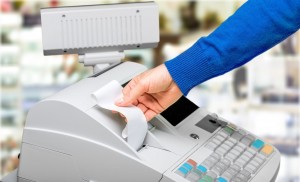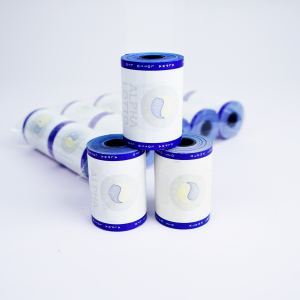Point-of-sale (POS) paper, commonly used for receipts and credit card transactions, is a common paper type produced and used in large quantities every day. With environmental concerns and the push for sustainable practices, one question that often comes up is whether POS paper can be recycled. In this article, we explore the answer to this question and discuss the importance of recycling POS paper.
In short, the answer is yes, POS paper can be recycled. However, there are some factors to consider when recycling this type of paper. POS paper is often coated with a chemical called bisphenol A (BPA) or bisphenol S (BPS) to aid thermal printing. While such paper can be recycled, the presence of these chemicals can complicate the recycling process.
When POS paper is recycled, BPA or BPS may contaminate the recycled pulp, reducing its value and potentially causing problems in the production of new paper products. That’s why it’s crucial to separate POS paper from other types of paper before sending it for recycling. Additionally, some recycling facilities may not accept POS paper due to difficulties in handling it.
Despite these challenges, there are still ways to effectively recycle POS paper. One approach is to use specialized recycling facilities that can handle BPA or BPS-coated thermal paper. These facilities have the technology and expertise to properly process POS paper and extract the chemicals before converting the paper into new products.
Another way to recycle POS paper is to use it in a way that doesn’t involve traditional recycling processes. For example, POS paper can be repurposed into crafts, packaging materials, and even insulation. While this may not be considered traditional recycling, it still prevents paper from ending up in landfills and serves as an alternative way to utilize the material.
The question of whether POS paper can be recycled raises broader questions about the need for sustainable alternatives in the production and use of paper products. As society becomes increasingly aware of the environmental impact of paper consumption, there is a growing demand for environmentally friendly alternatives to traditional paper, including POS paper.
One alternative is to use BPA or BPS-free POS paper. By eliminating the use of these chemicals in the production of POS paper, the recycling process becomes simpler and more environmentally friendly. As a result, manufacturers and retailers have been pushing to switch to BPA- or BPS-free POS paper to support recycling efforts and reduce the environmental impact of their operations.
In addition to using alternative paper products, efforts are also being made to reduce overall POS paper consumption. As technology advances, digital receipts become more common, reducing the need for physical POS paper receipts. By promoting digital receipts and implementing electronic record-keeping systems, businesses can minimize their reliance on paper at the POS and reduce their environmental impact.
Ultimately, the question of whether POS paper can be recycled highlights the importance of sustainable practices in paper production and use. As consumers, businesses and regulators become increasingly concerned about environmental issues, demand for environmentally friendly paper products and recycling solutions will continue to grow. All stakeholders must work together to support POS paper recycling and explore alternatives that prioritize sustainability.
In summary, while the recycling of POS paper presents challenges due to the presence of BPA or BPS coatings, it is possible to recycle this type of paper with the right methods. Dedicated recycling facilities and alternative uses for POS paper are viable solutions to ensuring paper does not end up in landfill. Additionally, switching to BPA-free or BPS-free POS paper and promoting digital receipts are steps in the right direction for sustainable paper consumption. By promoting environmentally friendly practices and supporting POS paper recycling, we can contribute to a greener, more sustainable future.
Post time: Jan-26-2024



